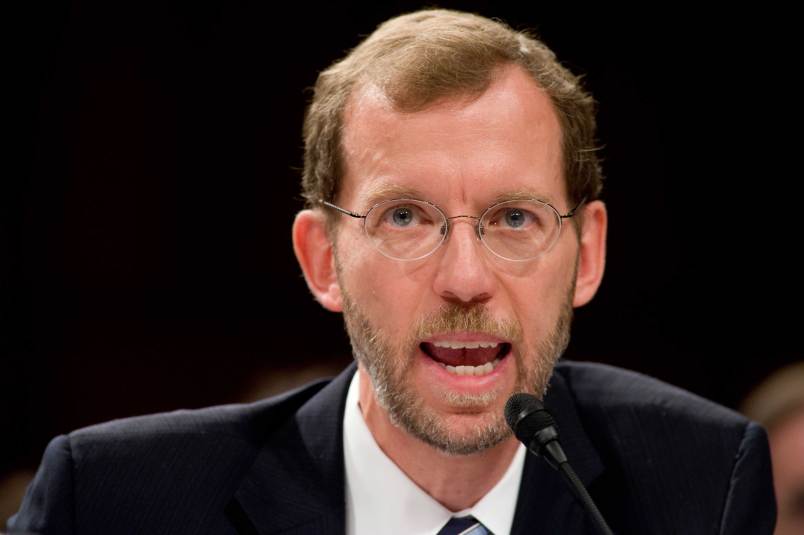Congress’ top adviser on federal budget issues warned Tuesday that even a brief default on U.S. credit obligations, triggered by a failure to raise the national debt limit in a timely fashion, would be “a dangerous gamble,” with potentially far-reaching consequences for the U.S. economy and citizens who rely on crucial social services.
“It is a dangerous gamble because any government that has borrowed as much as ours has borrowed and will need to borrow as much as ours will need to borrow cannot take the views of its creditors lightly,” CBO Director Doug Elmendorf told a roomful of reporters at a breakfast roundtable hosted by the Christian Science Monitor. “Even a small increase in the perceived risk of Treasuries would be very expensive for the countries.”
Ironically, Elmendorf noted that one of the potential consequences of even a brief period of default would be higher federal debt, triggered by a spike in interest rates and, thus, higher interest payments on federally issued debt.
“If Treasury rates moved up by just 10 basis points over the next decade, that would add $130 billion to interest payments over the decade,” Elmendorf said. A basis point is one-one hundreth of one percent. Thus, according to Elmendorf, each 0.1 percent increase in interest rates on U.S. Treasuries would amount to a significant increase in U.S. debt.
Elmendorf noted that the unfortunate prospect of default raises several key questions — but two in particular stick out to him as most important.
First: who, if not holders of U.S. debt would take an immediate haicut? “Exactly which obligation would we choose not to honor?” Elmendorf asked. “Is it the Social Security beneficiaries who wouldn’t get their checks? Is it the hospitals that wouldn’t get reimbursed for their expenses for a Medicare patient? Is it a state that wouldn’t get the Medicaid payments they’re expecting? Is it contractors for the federal government — businesses that wouldn’t get the payments they need to pay their employees? And that’s a set of choices that will have to be made.”
Second: Even if the government manages to honor its payment obligations to debt holders for a period of time after it can no longer juggle all of its obligations — a point the government expects to reach in early August — will America’s creditworthiness remain unblemished? “How would defaulting on some non-debt obligations affect the views of debt holders?” Elmendorf asked. “And I’ve heard different stories from people closer to the financial markets than I am. Some people think that financial markets — the debt holders — would conclude that as long as they’re getting paid, then that was okay. Other people I’ve talked to say that debt holders will think, ‘Well, if the government will default on this obligation because it can’t make a budget plan, maybe we’re next.'”
Fortunately, Elmendorf believes the attendant risks are so great that congressional leaders won’t let the worst come to pass. “It is because of that perceived risk that leaders of both political parties have made clear that defaulting on government obligations is not acceptable and will not be allowed to happen,” he said.
In the past several weeks, a number of influential Republican members of Congress have argued publicly that a brief default might not be such a bad thing after all — a view that contradicts expert opinion across the ideological spectrum. But more recently, bipartisan debt limit negotiations seem to have thawed considerably.










